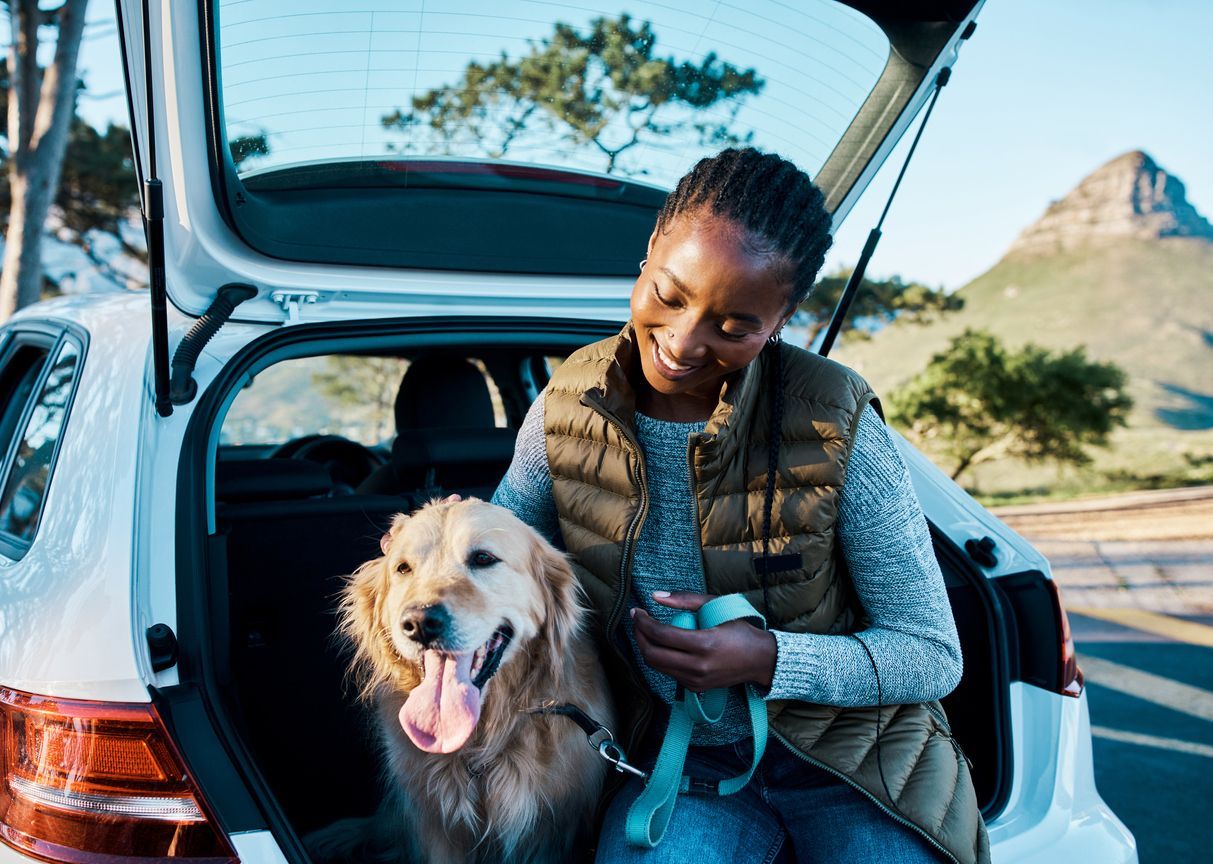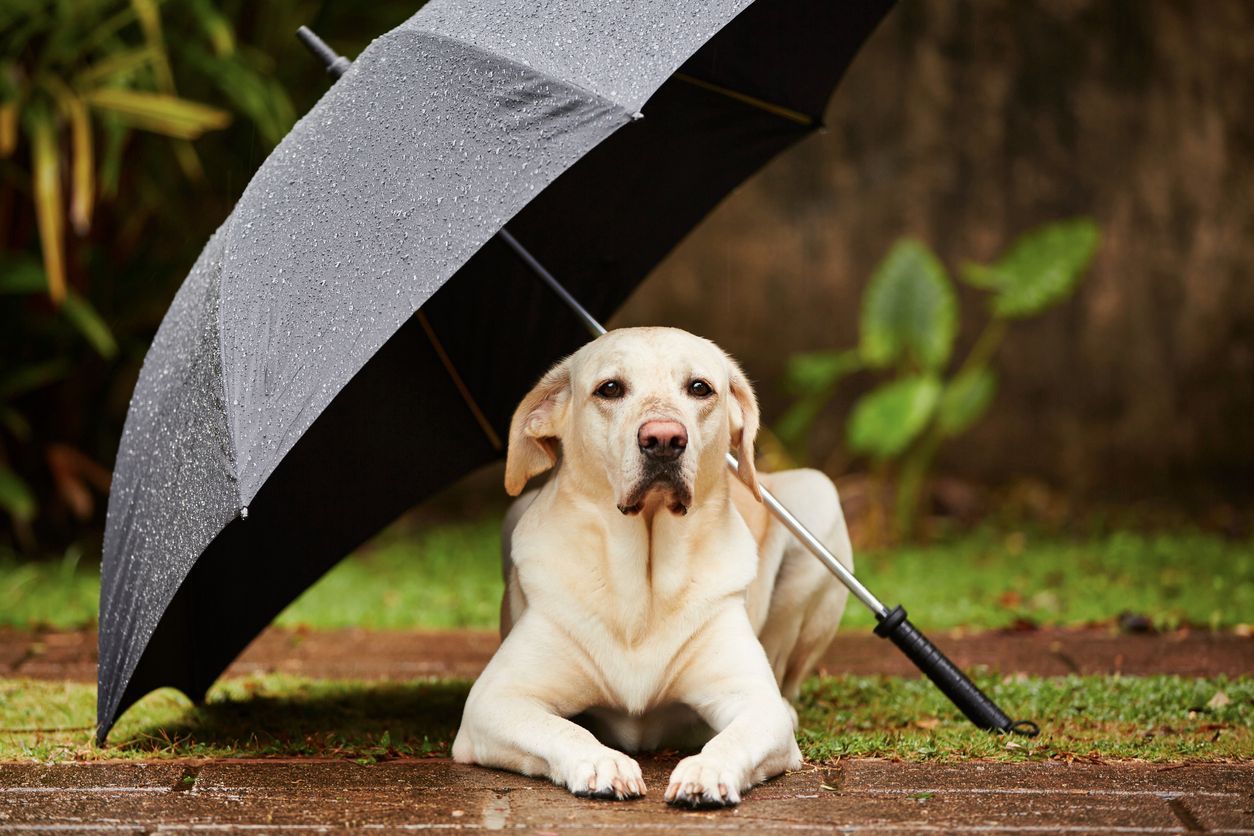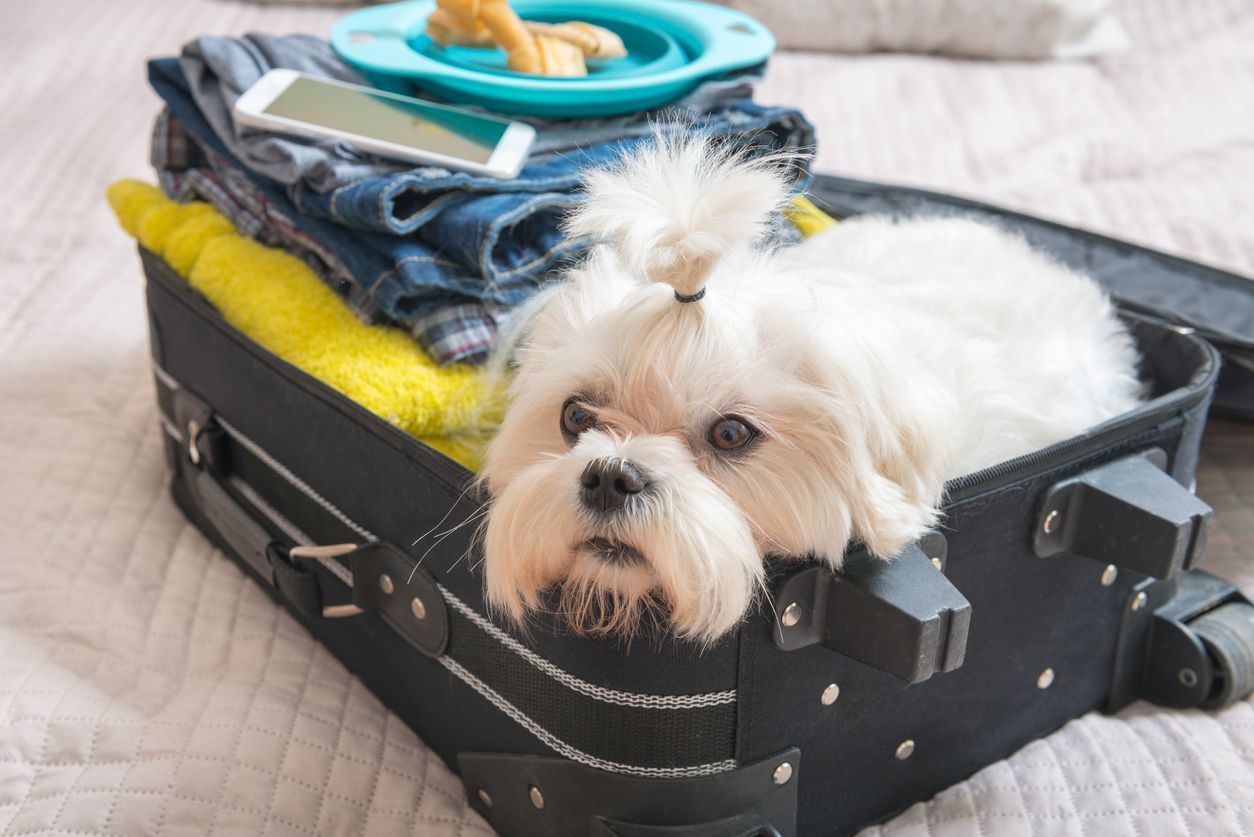Road trip tips for traveling with your pup

Please note: this article contains affiliate links. We may receive compensation when you click on links and purchase products. There is no extra charge to you, and all products listed are veterinarian-approved by our in-house veterinary professional.
Thinking about planning a road trip with your pup? You wouldn’t be the first. Nobel Prize-winning American author John Steinbeck’s “Travels With Charley: In Search of America” chronicles the cross-country trip he took with his French poodle.
Wherever in the world you are, there are some things you’ll need to keep in mind if you plan to hit the road with your pup.
So hop in, and we’ll go over tips for road trips with dogs below.
Training your dog for travel
Traveling with dogs in a car long distances can be stressful without proper preparation. To ensure that your dog does well on your next road trip, you’ll have to get them used to spending time in the car. This will help reduce feelings of uncertainty or frustration due to more-limited exercise.
Ensure a safe space for your dog in the car
Dogs love to sit on a car seat and stick their head out the window. This is a thrilling sensory rush for them. But it isn’t the safest way for them to travel.
Dogs should never be loose in the car. You should put them in a crate or hook them up to a safety harness. You can even modify one of your back seats with a dog booster or car seat.
Take test drives
Some dogs simply don’t enjoy car rides. Others live for them. But even dogs that love being in the car may not be ready to jump in and drive all the way across the country.
Start small: bring your pup along on short rides at first, then take progressively longer ones. Try taking them to a dog park that is a short drive away, then for longer rides on a highway. If things go well, bring them with you the next time you visit friends that live out-of-town (and have an accommodating home).
Introduce your dog to new places
While most dogs take to new experiences without major incident, others are skittish and rely on familiarity to keep stress at bay.
A road trip, after all, is a series of stops in unfamiliar places, so you’ll want to introduce your dog to new places near home first. Take them to a dog park they’ve never been to, spend time at a dog-friendly neighbor’s home, a doggie daycare, or a pet supply store they’ve never set paw in before. These are low-stakes new places, and your dog should be able to handle them with relative ease. If not, book a virtual appointment with a vet to discuss your dog’s specific history, temperament, and health to know if taking them on the road is advisable.
Planning a road trip with a dog
There’s an undeniable romance to jumping in your car and driving without an itinerary. But if you’re road tripping with your dog, spontaneity and a what-happens-happens attitude is risky.
You may not realize until you’re away from home how high maintenance your little buddy is, so plan out your itinerary to avoid unpleasant surprises.
Pick the perfect place to stay
According to the American Kennel Club, the following hotel chains are pet-friendly:
- Red Roof
- Motel 6
- Best Western
- DoubleTree by Hilton
- Extended Stay America
- Four Seasons
- Hampton Inn
- Marriott
- The Ritz-Carlton
While you may prefer to soak up some local color by making reservations at a bed-and-breakfast or an Airbnb, keep in mind that they may not have as generous a pet policy as the above options.
(If you’re keen to camp out under the stars, check out these camping with your pup tips.)
Check in with your vet
Before you hit the road, ask your vet if they think your dog is healthy enough to travel. Certain health conditions — such as chronic pain, incontinence, or acute infections — may limit your road trip options. If your dog gets too excited or finds car rides nauseating, your vet may be able to direct you to some helpful anti-anxiety or anti-nausea medications.
Make sure your vet forms are up to date, and future-proof them: carry a paper copy of your dog’s vaccination records along with a copy on your phone, as well as one in your email inbox. That way you can present the necessary documentation in whatever form it’s requested.
Don't forget to pack the essentials
In addition to vet records, make sure to to pack the following:
- Their usual food
- Medications
- Clean water
- Cleanup bags
- Toys
- Treats
- First Aid kit
- Collapsible food and water bowls
If you’ll be stopping near a beach and your pup is an inexperienced swimmer, pick up a doggie life vest. And if a long hike is on the agenda, a reflective vest is a good safety measure.
Be prepared in case of separation
Be prepared for a multitude of situations, including the worst-case-scenario of you and your dog becoming separated.
If they aren’t already microchipped, consider getting it done before your trip. A GPS collar could also be a life saver. And recent photos of your dog will help bystanders identify them if they are lost.
On-the-road tips
You’ve done all the planning and packed all your bags! Now here’s a few tips to ensure a smooth ride.
Wear your dog out before travel
As much as you may want stirring conversation during a road trip, your dog may not behave well enough for you to drive safely.
Before you go — and every few hours while on the road — get out and give your dog some vigorous run time. Make sure you have plenty of their favorite toys and, of course, an appropriate place to do this. The highway shoulder is not a safe option for exercising your dog.
Provide stimulation
Some dogs are stimulated by the road trip experience alone. Others get restless, bored, or demand your undivided attention.
And since you certainly shouldn’t scratch a dog in the back seat while you’re driving, you’ll need to provide plenty of your furry pal’s favorite toys. Stimulating toys are a great option that let your pup get a mental workout while you focus on the road.
Plan frequent stops
Dogs can’t hold it in forever. Neither can you, for that matter. You’re going to have to answer nature’s call eventually, and many vets recommend stopping at least every 3-4 hours to allow your dog to stretch and relieve themself.
Rest stops often have dog-friendly areas with enough room for a quick walk. Trails and parks that allow dogs are a great option and are an excellent way of getting to know a new environment, or new part of the country.
Be mindful at gas stations
If you’re going on a real road trip, you’ll eventually need to stop for gas. But be mindful that gas stations can be dangerous for dogs.
They’re high-traffic, low-visibility areas often with flashing lights, loudspeaker music, and vocal at-pump commercials. It’s a perfect storm of danger that will stimulate, and possibly overwhelm, your dog. Plus, if they ingest gasoline, antifreeze, or motor oil, you’ll need to secure emergency in-clinic veterinary help as soon as possible. Which can be difficult when you’re from out of town.
So keep your dog in the car while you’re pumping gas.
But remember that dogs get nervous when they can’t see you. So if you leave to pay for gas or buy a snack at the convenience store, you may come back to a stressed pup who needs to be soothed before you can get back on the road.
Check in on your dog’s nerves
Dogs get frightened, tired, bored, nervous, and overwhelmed just like we do. Add to that a superhuman sensitivity to sound and smell and you’ll get an idea why dogs don’t like fireworks or other elements that can overstimulate their senses. When you’re on a trip with your pup, be sure to check in on how they're managing all the new sights, sounds, and smells that likely go unobserved by you.
A worried, crying dog can be a significant driving distraction to any pet owner. If your dog is temperamentally nervous, consider purchasing comfort collars and constriction shirts that simulate the hugs they may need to relax.
Download Vetster in case of emergencies
Now that you know what you need to bring your pooch on your next trip, which direction are you going to choose: Route 66? The Autobahn? The Trans-Canada Highway?
Road trips are great fun with your groovy hound by your side, provided you are well-prepared and attentive to safety.
If you have pre-travel questions, book a virtual care appointment with Vetster. Qualified veterinary professionals can recommend proper safety seating, calming or anti-nausea medications, and other helpful road trip tips.









